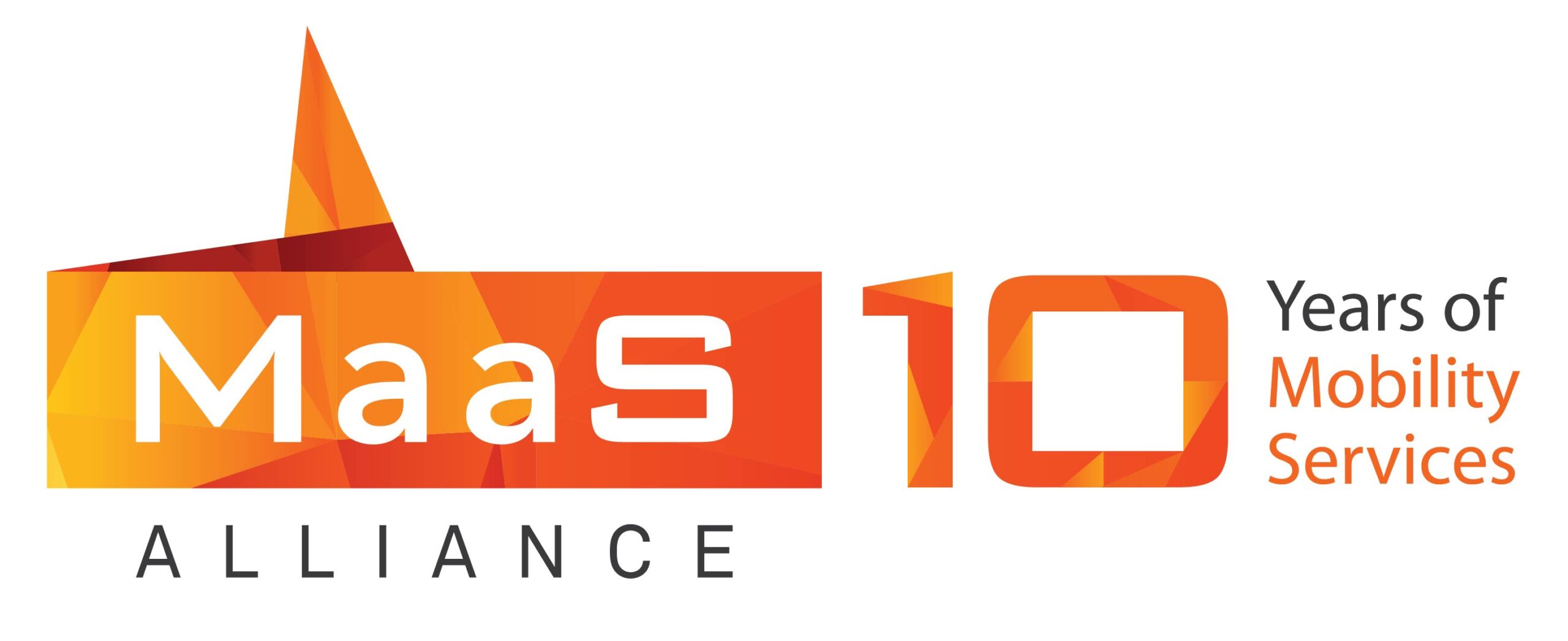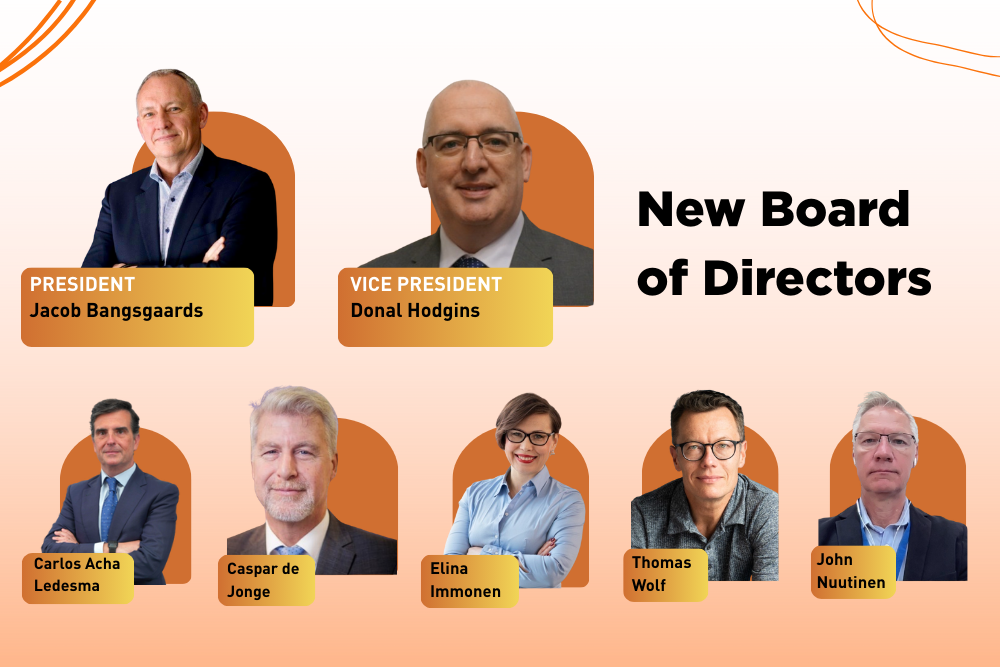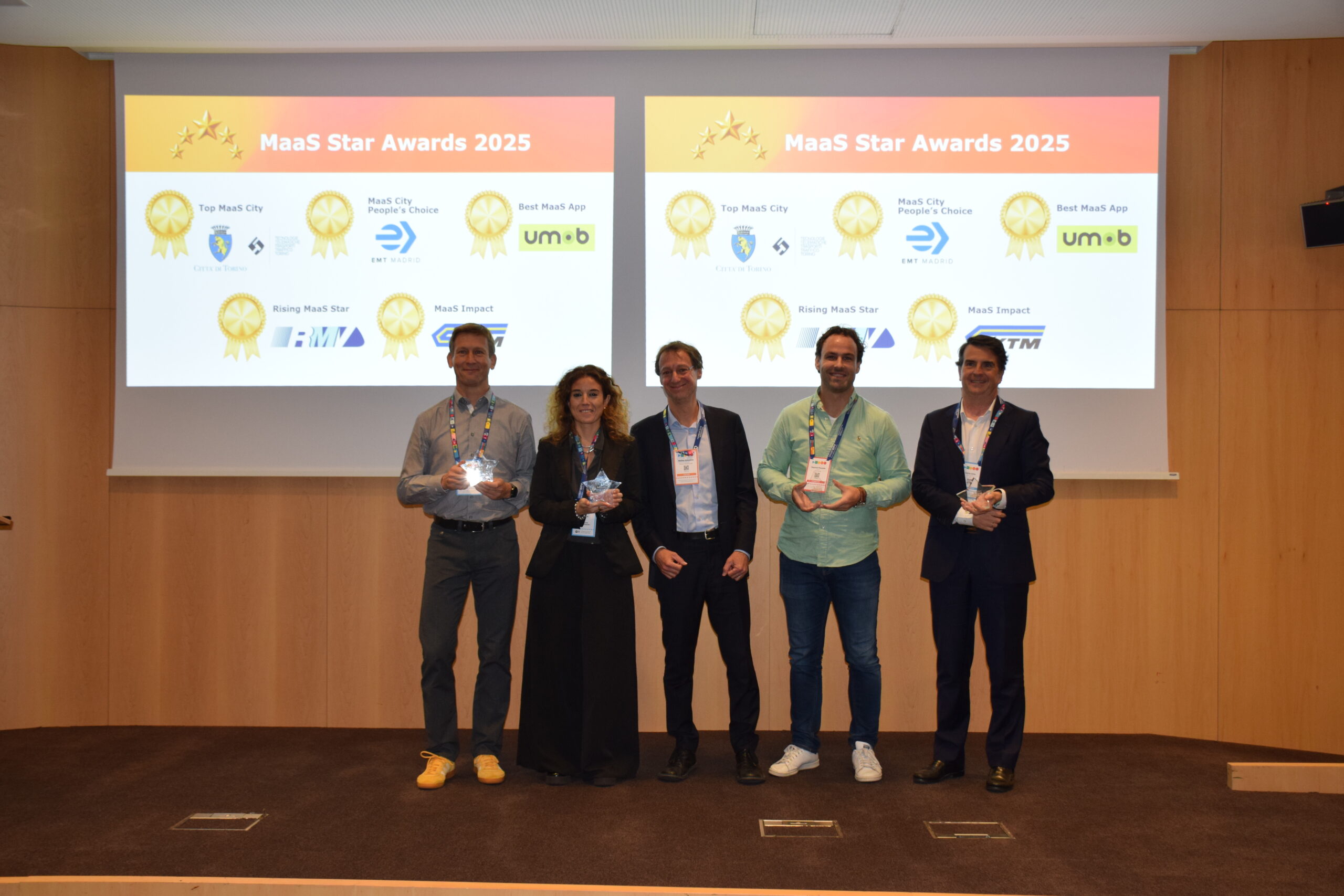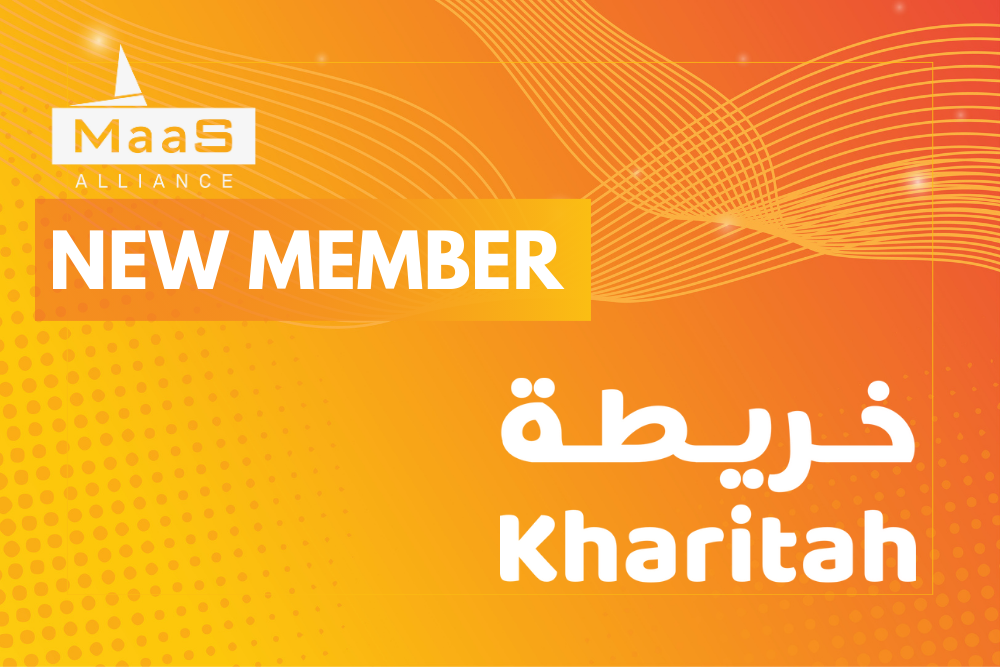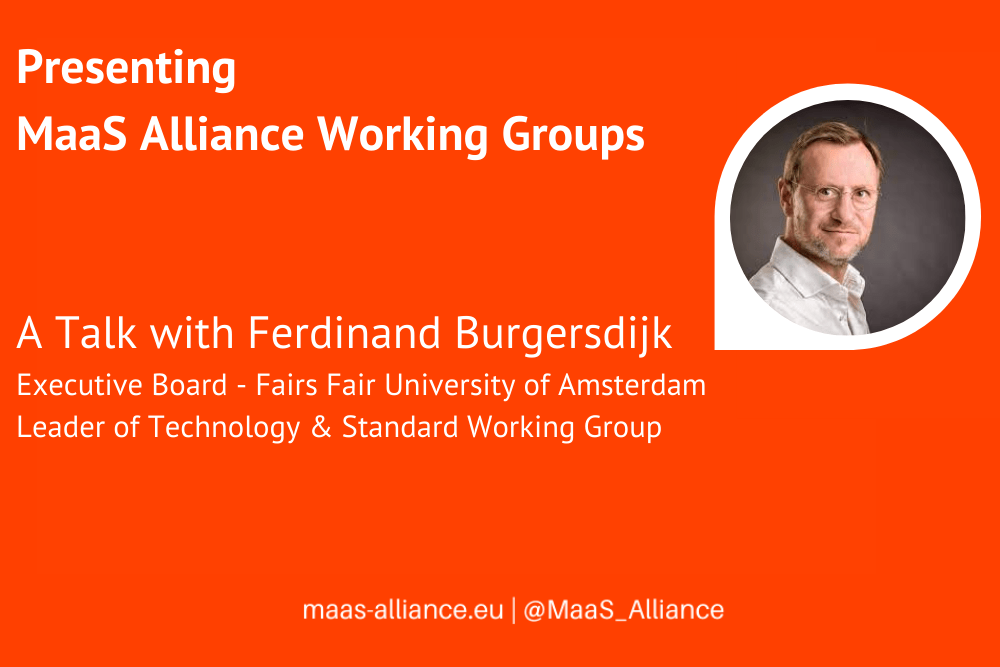
MaaS Alliance thrives on its members’ will to collaborate on new ideas to achieve a flourishing MaaS ecosystem in Europe and worldwide. In doing so, three Working Groups (WGs), each focusing on a dedicated topic, are currently running thanks to the dedication of our Working Group leaders.
In this blog, Ferdinand Burgersdijk, leader of the Technology and Standards Working Group, shares his thoughts on MaaS now and what MaaS will be.
It has been quite the roller coaster ride, loaded with all kinds of sentiments ranging from cheers to full-on stress. But, it is time to reflect on the last five years and recognise what has been accomplished. The Dutch Ministry consulted me to bring harmony to the Dutch MaaS landscape, setting up the seven nationally scalable pilots. We were expecting a tidal wave to hit our shores, and in the process, it became clear that the wave we feared was stranded in the early stages. However, Uber and other companies were successful in mobility, which raised questions regarding the consensus of their business models.
MaaS, for me, is a movement. And in hindsight, I can say a slow one at that. It’s not a technical challenge. It is challenging to align several aspects of the technical, operational, legal, commercial, and financial aspects. Having specialised in all different aspects, the urge to take a step back to a more fundamental level feels unnatural. And to make it even more complex: to build on the idea of co-option and the need for collaboration. The silo’s, which have formed themselves over so many years, prove resilient.
In recent years we had many speakers proudly presenting their work. Although there are up-and-coming projects out there, they ran into similar issues, such as differences in standards, formats, find-ability of data, and quality. These issues have led to calculation times beyond an acceptable one for any good customer experience. Another point reflected in every region is the framing of MaaS to their desires. Thus, asking for different tools and experiences lead to scalability issues.
These insights led to the shift in the work I think the WG should do: not only be a stage to present and share, but one that transcends to unite mobility professionals from a broad range of backgrounds. So now we’re in the phase that mini workshops and focus sessions help us find a common understanding.
While broadly accepting the technically sound version of API’s, we opened the sub-working groups to everyone. It allowed participants to help define Minimal Interoperable Mechanisms (MIM). In other words, that is what the information revolves around and their semantical context through establishing data models. We are not starting from scratch, we have set up, and we are expanding on a repository to see what works.
There are many local, commercial and global initiatives, and our efforts lay in bringing these back to a commonly appreciated set of information. This work will range from a minimal collection of data required from participants to broader sets that enable extra functionalities. Framing them and learning from implementations (time/resources), we want to advise governments to support such developments. Before we can enjoy the fruits of MaaS, we must first make sure to reach those conditions.
I am glad to see that the number of participants is rising quickly, and more regions around the globe are collaborating. Because MaaS is shifting mobility from a one-on-one to a multi-stakeholder interaction, we need to agree on the roles in this play. Not only what their contribution entails, but also the expected responsibilities. Similar to the technical part of our work, the standardisation will aim to establish simple descriptions to add to the understanding of each participant. Ticketing, with MMTIS in mind, deserves full attention. Moving towards a seamless travel experience that will fulfil the MaaS promise is central to our approach. What can we (re)use of existing systems/schemes, and how can we improve on this redistributing its insights over the relevant stakeholders to work on the societal goals collaboratively.
2021 is about bridging the knowledge gap, not just within the discipline of Technology, Standardisation, or Ticketing. MaaS will only move at the pace of the slowest of participants. Whereas the technology industry seems in the lead, the public officials (either in government service or in transport authorities) and the transport operators still have a tough time understanding the different aspects. Thus, they are not comfortable in making decisions. Setting up a transparent framework is imminent for supporting the fundament for collaboration for all stakeholders. It will enable the democratic structures to stay in place and prevent public interest from being overshadowed by private interest.
My work is about helping anyone in the field of mobility understand and comfortably act upon this shared know-how. Understanding that technology is not vital but merely supporting collaboration and communication. For me, personally, making sure that we can all enter into MaaS wholeheartedly is critical. To ensure that mobility is accessible and inclusive for all overcoming the data asymmetry and assuring that public funds are directed efficiently to desirable solutions.
Ferdinand Burgersdijk is part of a Bonus Familien. Being versatile by nature, he studied law at the age of 20, business administration in his 30-s and the currently combining his work with his interest in Philosophy. He is recognised as an enthusiast, evangelist and sparring partner, Ferdinand’s observations, analyses, and drive support projects and developments, where he uses language to help others understand the common objective. For Ferdinand helping shift the paradigm is about change towards a more equally balanced society.
